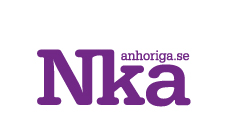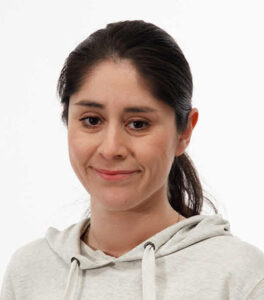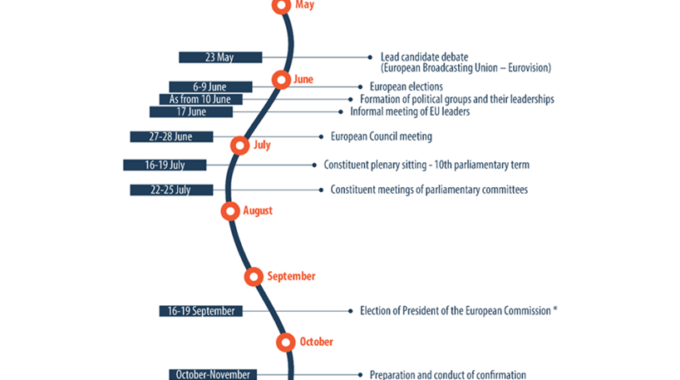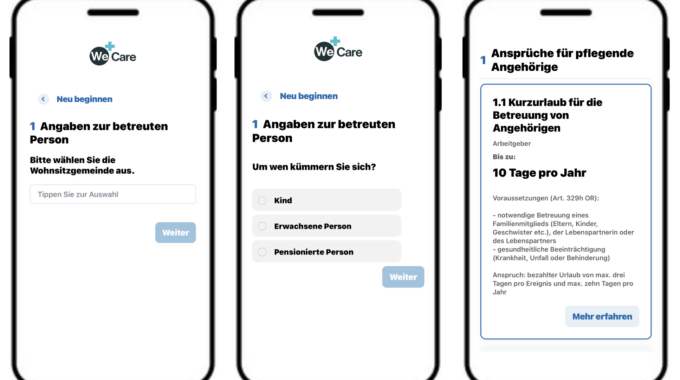
Impact on policymaking in Sweden
The Swedish Family Care Competence Centre (Nationellt kompetenscentrum anhöriga, Nka) actively responds to a number of consultation documents sent out by the government during the year. This makes it possible for Nka to influence policy and to raise awareness of how different decisions affect informal carers.
Before the Swedish Government takes a position on a policy proposal, it is sent out for consultation ¬– to public authorities, organisations, municipalities and other interest groups, but everyone is welcome to give their opinions – including the public. Thanks to this, the government can see what support the proposal has and gather important views from a range of actors.
Enabling authorities, organizations, and others to express their opinions has for a long time been seen as an important part of the democratic decision-making process in Sweden. Nka and Carers Sweden are regularly invited to respond to different consultation documents. They also choose to respond to other proposals where they find it important to highlight the carer’s perspective.
– This is an excellent opportunity to be able to leave our views on the proposals. The comment letters will also be made public for everyone, not just the commissioners and legislators. As a centre of excellence, we base our opinions on studies and collective knowledge. Hopefully, this contributes to creating elaborative propositions that benefit citizens, including informal carers, says Maria Nilsson, facilitator at Nka and doctoral student at Linnaeus University. Maria’s Phd studentship was also affiliated to the recently completed Sustainable Care Research programme at the University of Sheffield (led by Prof. Sue Yeandle at CIRCLE).
Nka invites key stakeholders to online hearings
As part of the work of responding to consultation documents, Nka organizes hearings to gather views on proposals from informal carers, organizations, and representatives from municipalities and regions. Nka finds it important to listen to what others think about the proposal in order to be able to leave as good an answer as possible.
– Nka’s role is to constantly reflect on the consequences for informal carers, and how we can ensure that carers remain visible and involved. So far, our comment letters have focused on highlighting the proposals that we find positive for informal carers, but also to point out the parts where we believe that the negative consequences for carers will not be addressed, says Maria Nilsson.
New reform about the health care system
One of the committee reports that Nka has responded to is “Good quality, local healthcare – A reform for a sustainable healthcare system”. In Sweden the responsibility for healthcare is shared between regions and municipalities, but the new reform aims to strengthen the cooperation between regions and municipalities to ensure that patients receive good and cohesive healthcare regardless of provider.
Work on the reform began in 2017 and is expected to be completed in 2027. The investigative work is concluded, and the commissions should now be converted into policy proposals. The process has begun, and Sweden’s 21 regions and 290 municipalities are now trying to make the proposals and new directives a reality.
The main purpose of the reform is to put more focus on primary health care and make it a new centre for health and medical care. The care should be provided close to the citizens and in a way that strengthens the patient’s health and prevents physical and mental illness. It should be planned based on the patient’s needs and designed together with the patient.
– Patients and carers should be involved at all levels of the healthcare system, which we at Nka think is very positive, says Maria Nilsson.
At the same time, Nka emphasizes the importance of knowledge among healthcare staff. The staff need to know how to make use of the carers’ knowledge and how to support them and see what consequences different measures can have for family members.

More care will be provided in the patient’s home
On the other hand, Nka and Carers Sweden see challenges with other parts of the reform. As care moves closer to the patient, it also means that more and more care will be performed at home. This will have major consequences for the patient’s family members. Nka’s and Carer’s Sweden’s fear is that carers’ burden, stress, and perceived sense of responsibility for their loved ones will increase further when more care is provided in their own home. It is also important to keep in mind that the home will in some cases be converted into a care home and workstation for healthcare staff.
– The reform promotes that more patients should receive help from so-called mobile teams. That is positive from many aspects, but it also means that advanced care is provided in the home where the patient’s family members also live. We highlighted this in our comment letter. It is important to think about how the situation will be for the family members, says Maria Nilsson.
One strength of moving care closer to the patient, on the other hand, may be that the family situation becomes more visible. The holistic view of the patient, family and informal carers becomes clearer when healthcare staff work in the home.
Permanent healthcare contact
Another important part of the reform is that patients should have a permanent healthcare contact. This contact is responsible for ensuring that the patient’s care plan is up-to-date and that the coordination works. Nka are positive about this, provided that the permanent care contact also listens to how the decisions affect the family members or others who are close to the patient. Nka also wishes it to be clearer who informs patients and family members about their rights so that everyone receives information about the possibility of a permanent healthcare contact.
In summary, Nka thinks that many parts of the reform are good, but points out that it is important to have a distinct carer’s perspective. Nka is currently planning for more strategic work in this area over the course of the next three years to help both educate and support health care staff to adopt a carer perspective and endeavour to create more carer and family friendly primary health care. This work includes tailored web education targeting primary health care staff working at health care centres and a more in-depth research and development project targeting home health care staff.
– Healthcare is a central part of the carers’ situation. Even though we are positive and share the vision of the reform, we are worried that the change will lead to increased pressure on informal carers, says Maria Nilsson and explains that Nka will continue to try to influence the policymaking by participating for example in the public debate in Swedish newspapers and social media, raising the awareness about the unpaid contributions made by carers daily.
Text: Josefine Göransson, Maria Nilsson, Elizabeth Hanson, Nka





